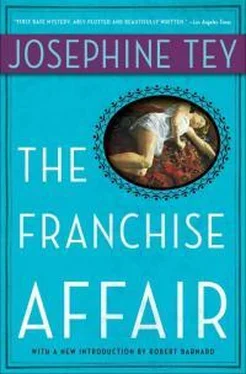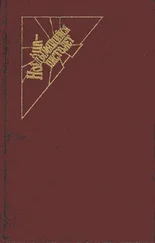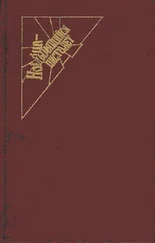“But you came,” he said; not accusing, just making the statement.
“Yes,” she said; shamefaced.
“Why? Because you thought it was your duty?”
“No, oh no.”
“Was it because someone forced you to come?”
Robert saw the judge’s instant reaction to this, but so out of the tail of his eye did Kevin. “Someone who held something over your head?” finished Kevin smoothly, and his lordship paused. “Someone who said: ‘You say what I tell you to say or I’ll tell about you’?”
She looked half-hopeful, half-bewildered. “I don’t know,” she said, falling back on the escape of the illiterate.
“Because if anyone made you tell lies by threatening what they would do to you if you didn’t, they can be punished for it.”
This was clearly a new idea to her.
“This court, all these people you see here, have come here today to find out the truth about something. And His Lordship up there would deal very sternly with anyone who had used threats to make you come here and say something that was not true. What is more, there is a very heavy punishment for persons who take an oath to speak truth and tell what is not true; but if it so happened that they had been frightened into telling lies by someone threatening them, then the person who would be punished most would be the person who made the threats. Do you understand that?”
“Yes,” she said in a whisper.
“Now I am going to suggest to you what really happened, and you will tell me whether I am right.” He waited for her agreement, but she said nothing, so he went on. “Someone – a friend of yours, perhaps – took something from The Franchise – let us say, a watch. She did not want the watch herself, perhaps, and so she handed it on to you. It may be that you did not want to take it, but your friend is perhaps a domineering person and you did not like to refuse her gift. So you took it. Now I suggest that presently that friend proposed to you that you should back up a story she was going to tell in court and you, being averse to telling lies, said no. And that she then said to you: ‘If you don’t back me up I shall say that you took that watch from The Franchise one day when you came to see me’ – or some other threat of that sort.”
He paused a moment but she merely looked bewildered.
“Now, I suggest that because of those threats you did actually go to the police court and did actually back up your friend’s untrue story, but that when you got home you were sorry and ashamed. So sorry and ashamed that the thought of keeping that watch any longer was unbearable to you. And that you then wrapped up the watch, and sent it back to The Franchise by post with a note saying: ‘I don’t want none of it.’” He paused. “I suggest to you, Gladys, that that is what really happened.”
But she had had time to take fright. “No,” she said. “No, I never had that watch.”
He ignored the admission, and said smoothly: “I am quite wrong about that?”
“Yes. It wasn’t me sent back the watch.”
He picked up a paper and said, still mildly: “When you were at that school we were talking about, you were very good at drawing. So good that you had things put up for show at the school exhibition.”
“Yes.”
“I have here a map of Canada – a very neat map – which was one of your exhibits and which indeed won you a prize. You have signed it here in the right-hand corner, and I have no doubt that you were proud to sign such a neat piece of work. I expect you will remember it.”
It was taken across the court to her, while Kevin added:
“Ladies and Gentlemen of the Jury, it is a map of Canada which Gladys Rees made in her last year at school. When his lordship has inspected it he will no doubt pass it on to you.” And then, to Gladys: “You made that map yourself?”
“Yes.”
“And wrote your name in the corner.”
“Yes.”
“And printed DOMINION OF CANADA across the bottom?”
“Yes.”
“You printed those letters across the bottom that read: DOMINION OF CANADA. Good. Now I have here the scrap of paper on which someone wrote the words: I DON’T WANT NONE OF IT. This scrap of paper, with its printed letters, were enclosed with the watch that was sent back to The Franchise. The watch that had gone missing while Rose Glyn was working there. And I suggest that the printing of I DON’T WANT NONE is the same as the printing of DOMINION OF CANADA. That it was written by the same hand. And that that hand was yours.”
“No,” she said, taking the scrap of paper as it was handed to her and putting it hastily down on the ledge as though it might sting her. “I never. I never sent back no watch.”
“You didn’t print those letters that read: I DON’T WANT NONE OF IT?”
“No.”
“But you did print those letters that read DOMINION OF CANADA?”
“Yes.”
“Well, later in this case I shall bring evidence that these two printings are by the same hand. In the meantime the jury can inspect them at their leisure and arrive at their own conclusions. Thank you.”
“My learned friend has suggested to you,” said Miles Allison, “that pressure was brought on you to come here. Is there any truth in that suggestion?”
“No.”
“You did not come here because you were frightened of what might happen to you if you didn’t?”
She took some time to think over this, evidently disentangling it in her mind. “No,” she ventured at last.
“What you said in the witness-box at the police court, and what you have said today, is the truth?”
“Yes.”
“Not something that someone suggested you might say?”
“No.”
But the impression that was left with the jury was just that: that she was an unwilling witness repeating a story that was someone else’s invention.
That ended the evidence for the prosecution and Kevin went straight on with the matter of Gladys Rees; on the housewife principle of “getting his feet clear” before he began the real work of the day.
A handwriting expert gave evidence that the two samples of printing which had been put into court were by the same hand. Not only had he no doubt about it, but he had rarely been given an easier task. Not only were letters duplicated in the two samples but combinations of letters were similarly duplicated, combinations such as DO and AN and ON. As it was evident that the jury had already made up their minds for themselves on this point – no one who saw the two samples could doubt that they were by the same hand – Allison’s suggestion that experts could be wrong was automatic and half-hearted. Kevin demolished it by producing his fingerprint witness, who deponed that the same fingerprints were to be found on each. And Allison’s suggestion that the fingerprints might not be those of Gladys Rees was a last-stand effort. He had no wish that the Court might put it to the test.
Now that he had established the fact that Gladys Rees had, when she made her first declaration, been in possession of a watch stolen from The Franchise and had returned it immediately after that declaration, with a conscience-stricken note, Kevin was free to deal with Betty Kane’s story. Rose Glyn and her story had been sufficiently discredited for the police to be already laying their heads together. He could safely leave Rose to the police.
When Bernard William Chadwick was called, there was a craning forward and a murmur of interrogation. This was a name that the newspaper readers did not recognise. What could he be doing in the case? What was he here to say?
He was here to say that he was a buyer of porcelain, fine china, and fancy goods of various kinds for a wholesale firm in London. That he was married and lived with his wife in a house in Ealing.
Читать дальше
Конец ознакомительного отрывка
Купить книгу












